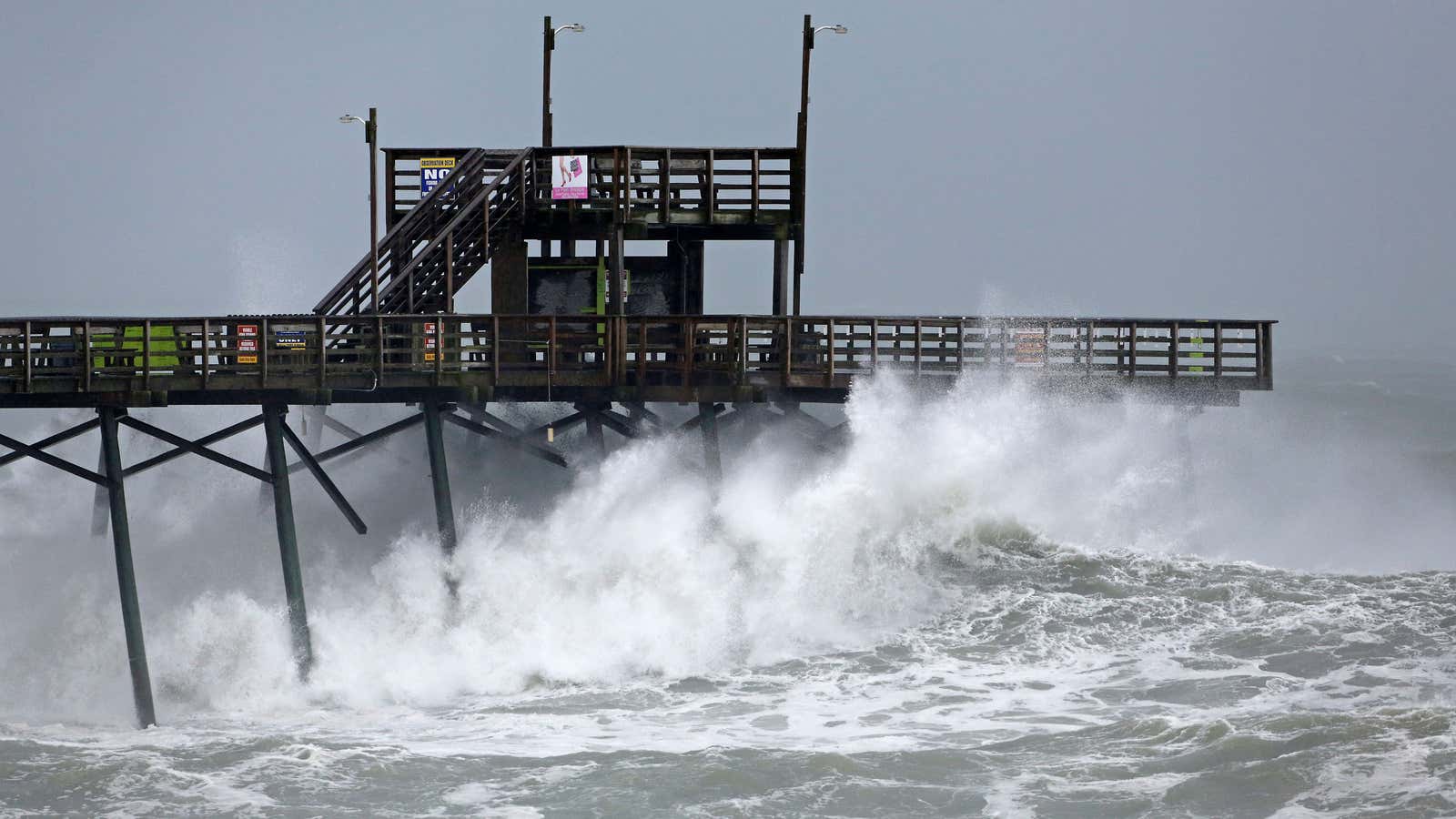As many North and South Carolinians scramble to prepare for Hurricane Florence, others think their hustle and bustle is nonsense. Brian Clarey, a writer for North Carolina alt-weekly Triad City Beat, posted an op-ed yesterday headlined “Calling BS: Hurricane, schmurricane.” Clarey says he’s weathered over a dozen hurricanes and encourages his readers from inland North Carolina to “get a grip.”
Clarey’s not the only one. A few days ago, Nancy Vaughan, the mayor of Greensboro, NC, assured her city’s residents that everything will be just fine. (Greensboro has since declared a state of emergency ahead of the storm, so it seems Vaughan may have changed her tune.)
Before every storm, there are the holdouts who think it’s overkill to keep bottled water or nonperishable foods on hand, or, even worse, who ignore evacuation warnings, thinking they can ride out the storm. These aren’t the folks who remain out of necessity—people with a disability that makes it hard for them to leave, or lack the financial means to evacuate—but the ones who take pride in their conviction that preparing is for suckers. It happened before Hurricane Sandy, Hurricane Matthew, and Hurricane Irma, and it’ll keep happening. But why?
It comes down to this: decision making is hard, and humans are not particularly good at gauging risk. Consider the many variables at play in calculating the probability that a storm will be hazardous: one might consider previous experiences (a dozen hurricanes!), the local forecast (Greensboro is a couple hundred miles inland, so conditions will be different from the coast), the conditions of the storm (which change hourly, and are incredibly complex to model, even for scientists), or the viability of our community’s infrastructure. Those variables are not only difficult to quantify, but also difficult to rank; how do we know which of those variables will really end up mattering the most?
When decision making becomes so complex, we tend to default to our biases. One major bias at play with natural disasters like hurricanes is something psychologists call the availability heuristic. When we call to mind our experiences about hurricanes, we assume that what’s happened before is what will likely happen this time: the last hurricane wasn’t so bad, so how bad could this one be? For instance, in a 2011 study, participants who were told to imagine they had weathered three hurricanes were less likely to say they would evacuate than participants who weren’t given any information about past experiences. Compounding that is our predisposition towards thinking our good fortune was actually the result of our own good judgment.
Combatting biases can be hard, but the first step is acknowledging our first instincts may be fallible. Rather than defaulting to the way we typically think, it can help to make a point of seeking out alternate viewpoints and considering a range of options. In the case of hurricane preparedness, what are your local weatherpeople saying? How about national agencies like FEMA, or hurricane researchers?
Let’s hope the naysayers are right, and that forecasts of the storm’s severity have been overblown. Just remember that there’s no shame in preparing and evacuating.
